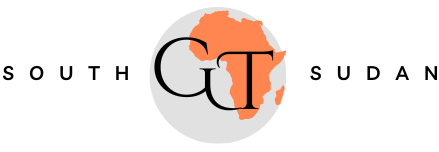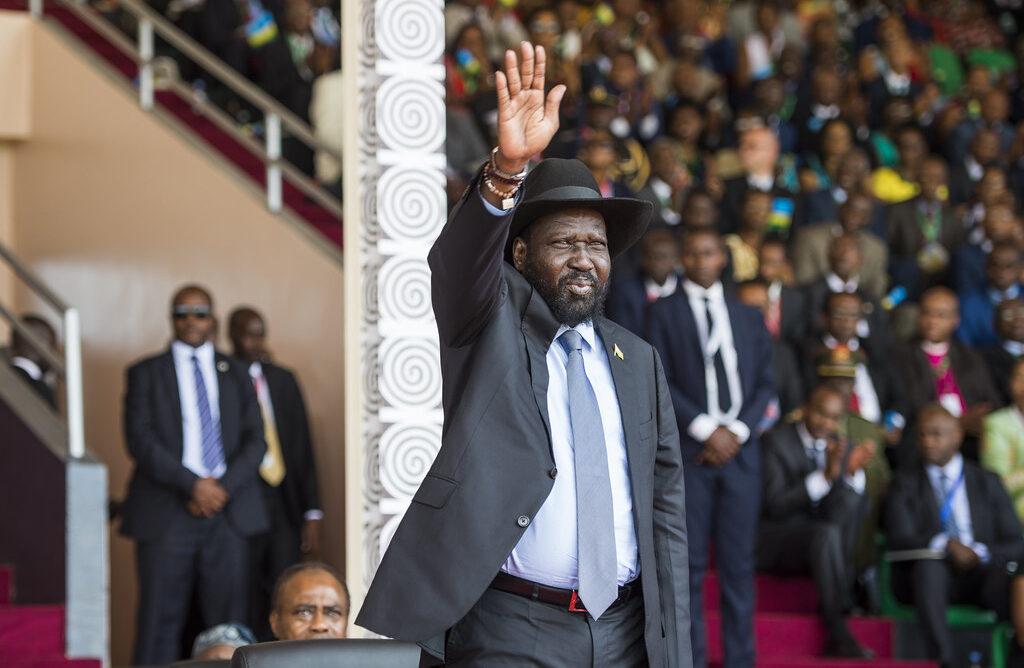Salva Kiir Mayardit, president of South Sudan. |File Photo|.
Press Secretary in the office of South Sudan’s President, Lily Albino Adhieu, refuted the allegations published in The Sentry Report accusing President Salva Kiir Mayardit, his family and relatives as well as dependents of controlling over 126 companies and wielding undue influence over the business landscape in South Sudan.
In a press statement, Lily Adhieu said the claims were unfounded, lacked credible evidence, and were aimed at tarnishing the reputation of South Sudan’s first family and sowing discord among South Sudanese.
The Sentry on November 19 published a massive trove of data exposing the control by the family of South Sudan President Salva Kiir over a secret business empire titled “Kiirdom: The Sprawling Corporate Kingdom of South Sudan’s First Family.”
The report provides a deep dive into the first family’s private capture of assets across South Sudan’s major national economic sectors including petroleum, mining, banking, trade, aviation, logistics, and private security.
President Kiir’s Spokesperson, Lily Albino Adhieu said The Sentry has failed to provide concrete evidence to substantiate its allegations.
“The report does not detail specific illegal activities, misappropriated funds, or any projects that the first family has allegedly benefited from unfairly. It also does not indicate the monetary value of these so-called benefits or demonstrate how they were obtained through corrupt means. Without such evidence, the allegations remain speculative and unconvincing,” Adhieu said.
Published on The Sentry’s new interactive Atlas platform, “Kiirdom” combines extensive documentation from the South Sudan Ministry of Justice with the findings from numerous original investigations by The Sentry.
John Prendergast, Co-Founder of The Sentry, said: “Since independence, rather than work toward a secure and prosperous future, the Kiir regime has orchestrated destabilization, repression, violent conflict, and mass starvation while consolidating a lucrative corporate empire. The first family has deployed an array of circumvention techniques to veil from the public their businesses and assets.”
“Kiirdom” on The Sentry’s Atlas platform provides the full scope of collected data plus expert analysis in a freely available and interactive format for use by interested reporters, researchers, bank compliance officers, law enforcement agencies, and policymakers.
The Sentry’s Atlas includes a visual interface to explore and learn about the companies, banks, and individuals linked to the first family’s business empire.
The “Network Insights” sections explain the various means and methods that the Kiir family used in building their business empire, including specific transactions, industries, companies, facilitators, and associates.
Adhieu instead said several of the companies mentioned in the report are no longer active, for example, she said, The Gemtel Telecom Company linked to the First Lady has long been closed down, a fact she said conveniently ignored by The Sentry to bolster its narrative.
She challenged The Sentry to disclose its sources of funding and its sponsors’ motivations, which she said clearly seem to be rooted in political interference rather than a genuine concern for accountability or human rights.
Michelle Kendler-Kretsch, Investigations Manager for The Sentry, said: “The Sentry’s new open-data platform, Atlas, illuminates the business empires, facilitators, and financing mechanisms of global networks of kleptocrats, conflict financiers, and war profiteers. Atlas functions as a deep dive into the nuts and bolts of a kleptocracy, aiming to facilitate public scrutiny, transparency, and accountability for these elites and their enablers. By providing an interactive visualization tool, easy-to-use search, expert analysis, and detailed profiles of individuals and entities, Atlas empowers journalists, policymakers, financial institutions, and the public to hold those responsible for large-scale violence and grand corruption accountable. Atlas projects are designed to be dynamic, enabling us to nimbly combat corruption through regular updates.”
The Sentry’s first investigative database project published on Atlas, “Aliyev Empire,” spotlighted how Leyla and Arzu Aliyeva, the daughters of Azerbaijan’s President Ilham Aliyev, secretly amassed a sprawling business empire worth more than $13 billion.
Based on the 126 companies mapped by The Sentry, the corporate network of Kiir’s family includes high-profile businesspeople and politicians from around the region, as well as members of the military and National Security Service, both of which have engaged in gross human rights violations.
The Sentry alleged that several companies that included Kiir family members in their lists of shareholders received public contracts or letters of credit, which are essentially guarantees from a bank to a seller that they’ll be paid by the buyer.
The Sentry, in examining these companies, identified a number of red flags for trade-based money laundering.
The children and grandchildren of Kiir and his brother-in-law, Gregory Vasili, served as founding shareholders for a number of companies when they were still minors.
South Sudan’s constitution prohibits high-ranking officials and other constitutional office holders from being involved in commercial business or receiving renumeration from any source other than the national government. However, this constitutional provision is often circumvented by having family members of officials listed as the shareholders on companies.
Despite the provision also requiring that these officeholders make a declaration of their assets and liabilities, including those of their spouses and children, such declarations—when they actually occur—often remain confidential and are not subject to public scrutiny.
The Sentry identified 70 companies with foreign shareholders in which members of the Kiir family also held shares. Foreigners can own businesses in South Sudan, but the 2012 Companies Act mandates that South Sudanese nationals hold at least 31% of the shares. While these requirements can support local South Sudanese economic interests, they can also create an advantage for companies with connections to the political elite.
The “Kiirdom” project is designed to enable the South Sudanese people to know what kind of business empire Kiir has built for himself and his family. It is also intended to support public scrutiny and compliance processes meant to mitigate against corruption risks, thereby ensuring that Kiir-connected companies and family members face enhanced due diligence commensurate with their risk profiles.




